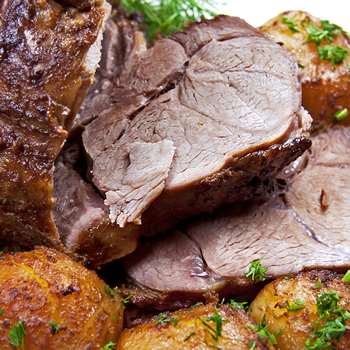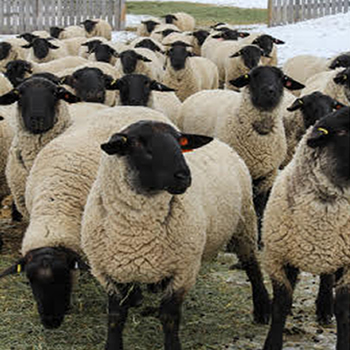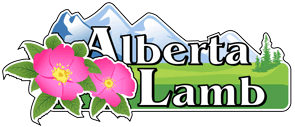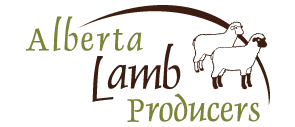- Intro to Dairy Sheep Farming
- A Guide to Raising Dairy Sheep
- Flock Health Management for Dairy Sheep
- Normal Lactation
- Flock Health Management
- Mastitis Costs, Signs of Mastitis, Cause of Mastitis, Important Risk Factors for Mastitis, Detect Mastitis in an Individual Sheep, Detection of Mastitis using Pooled Milk Samples, Culture Results, Assessment Table, Treating mastitis in a lactating dairy ewe, Dry period management of mastitis, Environmental Control of mastitis, Controlling a staphlococcus aureus mastitis problem in a flock, When should eewes be culled because of mastitis?, Genetic selection for resistence to mastitis,
- Eradication of maedi visna from the flock
- Preparing for Milking, Milking Management attaching of Teat Cups, Recommendations During Milking, Removal of the Milking Unit, Hand Milking, Teat Dipping, Milking Order
- Parlours, The Basics of Cleaning Milking Equipment, Set-Up and Inspection of Milking Equipement
- Milk Quality, Somatic Cell Count, Bacterial Contamination of milk, Freezing Point, Detection of inhibitors and other chemicals, Milk Odour, Veterinary drugs approved for use in lactating dairy sheep, Detecting residues of drugs and chemicals in milk, Avoiding residues of drugs and chemicals in milk, Organic milk production
- Word or phrase definitions
- Monitoring and goal setting
- References and additional reading materials
- Quiz and answers
- A Publication of ATTRA - National Sustainable Agriculture Information Service
- DSANA 2015 Symposium Information
Welcome! If you are looking for more information on Alberta Lamb, you have come to the right place.
To make it easier to find what you are looking for, please click on one of the two buttons below.

Consumers
Looking for delicious lamb recipes? To discover nutritious lamb facts, cooking tips and where to find local suppliers click here!

Industry Members
Supporting and connecting Alberta Lamb Producers. Click here for a wealth of sheep industry resources developed for our Producers.
All livestock producers will eventually face a situation when euthanizing a compromised animal is the most humane option. Effectively and safely performing euthanasia on-farm when needed decreases animal suffering and helps maintain a high level of animal welfare.
Based on the Code of Practice for the Care and Handling of Sheep, the ALP On-Farm Euthanasia manual provides information regarding:
- Guidelines on making the decision to perform on-farm euthanasia.
- Approved methods of euthanasia for different ages of sheep.
- Handling of deadstock
ALP has scheduled two nutrition webinars with Dale Engstrom. Dale has an extensive background as a producer, ruminant nutritionist with Alberta Agriculture, sheep industry consultant and columnist for Sheep Canada magazine. Please join Dale and ALP for the following free webinars!
Getting Lambs on Feed & Water. Saturday, August 26, 2017. 11 am - 12 pm.
Feed and Water Testing: Why bother? Saturday, September 16, 2017. 11 am - 12 pm.
Premises Identification became mandatory in Alberta on January 1, 2009
Premises identification is a way of linking farm animals to geographic locations for disease, health and food safety purposes and effective emergency response.
If you are an owner of livestock in Alberta you are required to obtain a Premises Identification (PID) account and register at least one premises in order to obtain a PID number. A PID number is a unique identifying number assigned to a specific piece of property. If you operate co-mingling sites (a site where animals of more than one owner are housed together) you are also required to obtain a PID account, register the site(s) and inform the animal owners of the PID number.
In Alberta, reportable livestock include: cattle, dairy, bison, hogs, sheep, goats, horses, cervids, poultry, llama, alpaca, ostrich, emu, ducks and other game fowl.
This list supports the reportable and notifiable disease regulation that mitigates threats to market access, the economy and/or public health. The list of Alberta's reportable and notifiable diseases are available for review on-line.
There are two ways to apply for a premises identification number to register on-line or to obtain an on-line registration form visit: www.agriculture.alberta.ca/premises
Or you can obtain a paper application form from Alberta Agriculture and Rural Development (ARD) or AFSC offices located throughout Alberta. For further information on the Premises Identification Program contact the Ag-Info Centre at 310-FARM (3276). If you want to check on the progress of your PID application, call 780 422 9167.
You will need to provide your PID when purchasing Canadian Sheep Identification Program tags, taking animals to auction and to buy animal medications.
Vist the
An online survey is available to help set national priorities developing A Food Policy for Canadaregarding food production, including supports for new producers and environmental concerns. Read the Agriculture Canada Press Release below.

